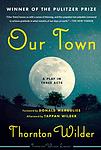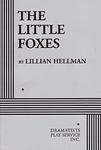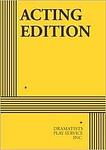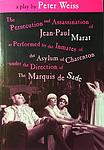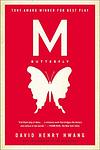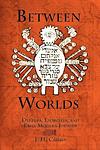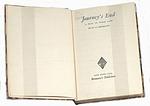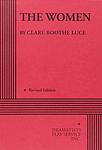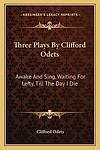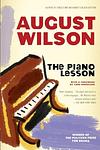50 Greatest Plays of The Past 100 Years (1913–2013)
This is one of the 284 lists we use to generate our main The Greatest Books list.
-
Death Of A Salesman by Arthur Miller
This classic play explores the life of a failing salesman who, in his quest for the American Dream, struggles with his relationships and his own sense of reality. The protagonist's life spirals into despair as he grapples with his unfulfilled ambitions, strained family dynamics, and ultimately, his own mortality. The narrative delves deep into the themes of identity, illusion, and the destructive nature of the American Dream.
-
A Streetcar Named Desire by Tennessee Williams
"A Streetcar Named Desire" is a classic American play that explores themes of desire, desperation, and decay through the story of Blanche DuBois, a former schoolteacher from a once-wealthy Southern family who moves in with her sister Stella and her brutish husband Stanley in their cramped apartment in New Orleans. As Blanche grapples with her own past traumas and the harsh realities of her present situation, her mental state deteriorates, leading to a tragic end. The play presents a stark contrast between the genteel Old South and the gritty, working-class reality of post-WWII America.
-
Who's Afraid Of Virginia Woolf? by Edward Albee
The play is a darkly comedic exploration of the complexities of marriage and personal disillusionment. Set over the course of a single evening, it follows an older couple, George and Martha, who, after a faculty party, invite a younger couple, Nick and Honey, to their home for late-night drinks. As the night progresses, George and Martha engage in increasingly vicious verbal battles in front of their guests, using them as pawns in their psychological warfare. The play delves into themes of reality versus illusion, as the characters' secrets and personal failures are exposed, revealing the deep-seated unhappiness and dysfunction at the heart of their relationships.
-
Long Day's Journey Into Night by Eugene O'Neill
"Long Day's Journey Into Night" is a semi-autobiographical play that explores the complex dynamics of a family tormented by addiction and regret. The narrative follows the Tyrone family, composed of two parents and their two adult sons, over the course of a single day. As the day progresses, the family members engage in soul-baring conversations that reveal their individual struggles with alcohol and drug addiction, their deep-seated resentments, and the love that binds them together despite their flaws. The play is a poignant examination of the human condition, familial bonds, and the destructive power of addiction.
-
Fences by August Wilson
The play explores the life of an African American family in the 1950s, focusing on the complex relationships between a father, who once aspired to be a professional baseball player but was thwarted by racial discrimination, and his family. The father's bitterness and frustrations over his unfulfilled dreams and the racial barriers of his time manifest in his relationships with his sons, who have their own hopes and ambitions. The narrative delves into themes of generational conflict, racial inequality, and the struggle for personal fulfillment, all symbolized by the fence the father builds around his yard, which serves as a metaphor for both division and protection.
-
Angels In America by Tony Kushner
The play is a profound and complex exploration of the AIDS crisis in the 1980s, intertwining the lives of several characters grappling with their sexuality, religion, and politics. Set against the backdrop of a conservative Reagan-era America, it delves into themes of abandonment, race, and the supernatural, as characters confront personal and societal challenges. The narrative weaves together the stories of a gay man diagnosed with AIDS, his closeted and conflicted lover, a Mormon couple facing their own crises, and a notorious real-life lawyer, Roy Cohn, also battling AIDS. Ethereal beings, including a heralding angel, intersect with the characters' lives, adding a fantastical dimension to the play's commentary on human suffering, redemption, and the quest for justice and love.
-
Waiting for Godot by Samuel Beckett
"Waiting for Godot" is a play that explores themes of existentialism, despair, and the human condition through the story of two characters, Vladimir and Estragon, who wait endlessly for a man named Godot, who never arrives. While they wait, they engage in a variety of discussions and encounter three other characters. The play is characterized by its minimalistic setting and lack of a traditional plot, leaving much to interpretation.
-
Pygmalion by George Bernard Shaw
"Pygmalion" is a play that explores the transformative power of education and the nature of language and communication. It follows the story of a cockney flower girl named Eliza Doolittle who is taught to speak and behave like a duchess by a pompous phonetics professor, Henry Higgins. Throughout the process, Eliza develops self-respect and personal dignity, challenging the Victorian society's rigid class system. The play also questions the idea of 'making' someone and the moral responsibility that comes with it.
-
A Raisin In The Sun by Lorraine Hansberry
The play explores the dreams and struggles of a Black family living on Chicago's South Side in the 1950s. When the family receives a $10,000 insurance check after the father's death, each member has different ideas about how to use the money. The mother wishes to buy a house to fulfill her late husband's dream of providing a better home for the family, while her son wants to invest in a liquor store to secure their financial future. The daughter seeks to use part of the money for her medical school tuition. Their conflicting aspirations and the pervasive racism of the era put a strain on the family's unity and values, as they strive to find their place in a world that often seems to work against them.
-
Our Town by Thornton Wilder
This play is a poignant depiction of life in a small American town called Grover's Corners, New Hampshire, at the turn of the 20th century. Through the everyday lives of its citizens, the narrative explores universal themes of love, marriage, mortality, and the passage of time. The story is narrated by a stage manager who directly addresses the audience and interacts with the characters, guiding viewers through the experiences of two families, the Gibbs and the Webbs. The play's minimalist staging and meta-theatrical elements emphasize the ephemeral nature of human existence, encouraging the audience to appreciate the beauty of life's ordinary moments.
-
Six Characters in Search of an Author by Luigi Pirandello
In this metatheatrical play, six characters come to life and demand that a theater director tell their tragic story, which was left incomplete by their author. As the director and his actors interact with these characters, the boundaries between fiction and reality blur, leading to a philosophical exploration of the nature of human identity, the reliability of art, and the unreliability of perception. The characters' story, involving a complex web of familial relationships, adultery, and suicide, further complicates the narrative, challenging the audience's understanding of truth and illusion.
-
The Glass Menagerie by Tennessee Williams
A memory play set in St. Louis during the Great Depression, it follows the story of the Wingfield family. The protagonist, Tom, struggles with his role as the breadwinner for his overbearing mother, Amanda, and his physically and emotionally fragile sister, Laura, who spends her time with her collection of glass animals. The family's life takes a turn when Tom invites a gentleman caller home for dinner to meet Laura, causing tensions to rise and secrets to unfold.
-
Glengarry Glen Ross by David Mamet
The book is a scathing critique of the cutthroat world of real estate sales. It follows a group of desperate salesmen in Chicago who are willing to engage in a range of unethical and illegal acts—from lies and flattery to bribery and burglary—to sell undesirable real estate to unwitting buyers. The story is a snapshot of their lives over two days, highlighting the intense pressure they face from their company to close deals by any means necessary in order to survive in a merciless, competitive environment. The narrative delves into themes of capitalism, desperation, and the corrupting influence of a high-stakes sales culture, all while presenting a darkly comedic portrayal of the characters' struggles for success and self-preservation.
-
August by Tracy Letts
"August" is a darkly comic play that delves into the dysfunctional dynamics of the Weston family, brought together by the disappearance of their patriarch in the scorching heat of an Oklahoma summer. The reunion at the family home leads to a turbulent confrontation of long-held secrets, personal demons, and bitter sibling rivalries. As the family's matriarch, who is afflicted with cancer and addicted to pills, faces the reality of her crumbling world, the characters are forced to confront their past choices and the uncertain future that lies ahead. The narrative weaves a tale of a family struggling to find solace and meaning amidst chaos and decline.
-
True West by Sam Shepard
The play is a darkly comedic exploration of the volatile relationship between two estranged brothers who are brought together at their mother's suburban California home. The older brother, a struggling screenwriter, is working on a script while housesitting, only to be interrupted by his younger sibling, a drifter and thief. What follows is an intense, often surreal, confrontation that challenges their identities and aspirations, ultimately leading to a role reversal as they vie for the approval of a Hollywood producer. Their conflict escalates to a point of no return, symbolizing the clash of American myths and realities and questioning the very nature of authenticity and success.
-
The Iceman Cometh by Eugene O'Neill
"The Iceman Cometh" is a play set in a New York City bar in 1912, featuring a group of down-and-out alcoholics who spend their days in a state of drunken stupor, telling tall tales and dreaming of better futures. The arrival of a former patron, now sober, disrupts their routine as he insists on forcing them to face the harsh realities of their lives and abandon their delusions. The play is a poignant exploration of despair, disillusionment, and the human capacity for self-deception.
-
Look Back In Anger by John Osborne
The play centers around Jimmy Porter, an intelligent and educated but disaffected young man of working-class origin who is married to Alison, a woman from a more privileged background. Set in post-war Britain, the narrative captures the couple's volatile relationship and Jimmy's frustration with the lack of opportunities and the class structure that he feels traps him. The arrival of Alison's friend, Helena, adds further tension as she both criticizes and is attracted to Jimmy's raw passion. Themes of anger, class conflict, and disillusionment with the establishment are woven throughout the play, which ultimately explores the complexities of human relationships and societal expectations.
-
A View From The Bridge by Arthur Miller
The play is a tragic drama set in the 1950s in an Italian-American neighborhood near the Brooklyn Bridge in New York. It follows the life of Eddie Carbone, a longshoreman who lives with his wife Beatrice and his orphaned niece Catherine whom he has developed inappropriate feelings for. When Beatrice's cousins, illegal immigrants from Italy, arrive and one of them, Rodolpho, begins a romance with Catherine, Eddie's jealousy and obsession lead to betrayal and a tragic confrontation that culminates in violence and a devastating conclusion. The narrative explores themes of honor, family, and the struggle of the immigrant experience.
-
The Little Foxes by Lillian Hellman
The play is a riveting Southern Gothic tale that delves into the greed and deceit within the Hubbard family in the Deep South at the turn of the 20th century. As the family members scheme and manipulate each other to gain control of a lucrative cotton mill venture, the narrative exposes the moral decay festering beneath their quest for wealth. Central to the story is a strong-willed and manipulative matriarch who will stop at nothing to secure her financial future, even at the expense of her own family's happiness and well-being. The play's exploration of themes such as ambition, betrayal, and the corrosive effects of greed makes it a powerful and enduring piece of American drama.
-
The Real Thing by Tom Stoppard
"The Real Thing" is a play that explores the complexities of love, fidelity, and the blurred lines between life and art. It follows the story of Henry, a witty and cynical playwright, whose intellectual prowess masks his emotional insecurities. As the narrative unfolds, Henry's relationships with his wife, his mistress, and his friends are tested, revealing the struggles and contradictions inherent in his quest for authentic emotion. The play delves into themes of intellectual honesty, the nature of reality versus appearance, and the challenge of distinguishing genuine feelings from their artistic representations, all while showcasing the characters' sharp dialogue and introspective moments.
-
Master Harold...And The Boys by Athol Fugard
The play takes place in South Africa during the era of apartheid and revolves around the complex relationship between a young white boy and two black men who work in his mother's tea room. The boy has grown up with these men and shares a close bond with them, but as he struggles with personal turmoil and the pressures of the racist society around him, he begins to assert his racial superiority, leading to a devastating display of discrimination and the shattering of their familial relationship. The narrative explores themes of racism, human dignity, and the impact of societal injustice on personal relationships.
-
The Homecoming by Harold Pinter
"The Homecoming" is a play that delves into the complex dynamics of a dysfunctional family when the eldest son returns home after a long absence. Set in North London, the story unfolds in the family's house, where the son introduces his wife to his domineering father, his uncle, and his two brothers. Tensions rise as the family's power struggles and hidden resentments come to the fore, leading to a shocking and unsettling realignment of relationships within the household. The play explores themes of power, sexuality, and the search for identity within the confines of a seemingly traditional family structure.
-
Ruined by Lynn Nottage
The play is a gripping tale set in a small mining town in the war-torn Democratic Republic of Congo. It centers on the struggles of women who seek refuge in a bar and brothel run by a shrewd businesswoman who both protects and profits from her customers. The narrative delves into the complex relationships and survival strategies in a land ravaged by civil war, focusing on the resilience of women facing unspeakable hardships, their sense of community, and the human capacity for endurance amidst a landscape of moral ambiguity and ruin.
-
Mother Courage and Her Children by Bertolt Brecht
Set against the backdrop of the Thirty Years' War, the book tells the story of a canteen woman, Mother Courage, who pulls her cart with her three children across war-torn Europe. It explores her struggles and survival tactics as she tries to profit from the war while keeping her children safe. The narrative is a profound critique of war and its consequences, highlighting the human cost of conflict and the often futile search for prosperity and security in a chaotic world.
-
Six Degrees Of Separation by John Guare
The play explores the premise that everyone in the world is connected to everyone else by a chain of no more than six acquaintances. It centers around a young con artist who infiltrates the lives of a wealthy New York couple, claiming to be the son of a famous movie star and a classmate of their children at Harvard. By spinning a web of lies and charm, he exposes the superficial nature of their social world while also revealing the deep-seated racial and class anxieties that lie beneath the polished surface of their lives. The title refers to the idea that any two individuals are connected by a chain of, at most, six other people, which becomes a metaphor for the interconnectedness of human experience and the illusion of separation in society.
-
Doubt: A Parable by John Patrick Shanley
"Doubt: A Parable" is a gripping play set in a 1960s Bronx Catholic school, where the principal, Sister Aloysius, suspects the charismatic Father Flynn of improper relations with a student. As she seeks the truth, her convictions are challenged by the uncertainties and moral complexities of the situation. The play explores the nature of belief, the struggle for certainty in a world of ambiguity, and the consequences of acting on convictions in the absence of proof. Through its intense dialogue and powerful character dynamics, the narrative examines the fine line between righteousness and self-deception, leaving audiences to grapple with their interpretations of guilt and innocence.
-
Top Girls by Caryl Churchill
The play explores the challenges faced by women in the corporate world and society at large through the story of Marlene, a career-driven woman who has just been promoted to managing director at the Top Girls Employment Agency. The narrative delves into themes of feminism, class, and societal expectations as Marlene's success is juxtaposed with the lives of various historical and fictional women, who appear in a surreal dinner party scene, and the experiences of her own family, particularly her sister and her niece. The play critically examines the cost of Marlene's ambition and the sacrifices made by women who strive to break the glass ceiling, questioning the notion of what it means to be a "top girl" in a male-dominated world.
-
Present Laughter by Noel Coward
The play revolves around a few days in the life of a successful and self-obsessed light comedy actor as he prepares to embark on a touring commitment in Africa. Amid a series of farcical incidents, he has to deal with a series of intrusions, including the adoration of young fans, the constant presence of his ex-lovers, and the more serious overtures of a playwright who idolizes him. His attempts to disentangle himself from these personal complications provide a comedic exploration of fame, vanity, and the chaos of celebrity life.
-
Noises Off by Michael Frayn
The book in question is a comedic narrative that takes readers behind the scenes of a chaotic and farcical theatrical production. It humorously details the mishaps, misunderstandings, and mayhem that ensue both on and offstage as a cast of eccentric actors attempts to present a play to their audience. With a play-within-a-play structure, the book provides a satirical look at the world of theater, showcasing the fragile egos, romantic entanglements, and technical disasters that can collide with disastrous and hilarious results. As the characters scramble to keep their performance from falling apart, the line between their on-stage roles and off-stage lives blurs, creating a whirlwind of slapstick and comedic timing that has delighted readers and audiences alike.
-
Marat Sade by Peter Weiss
The play is a dramatic exploration of power, class struggle, and human suffering set within the confines of an insane asylum in 1808 France. It depicts the Marquis de Sade as an inmate directing his fellow patients in a play about the assassination of Jean-Paul Marat, a radical journalist and politician during the French Revolution. The work delves into the philosophical and political debates between Sade and Marat, representing differing views on revolution, freedom, and the nature of humanity. As the inmates perform, the line between performance and reality blurs, creating a provocative and chaotic theater experience that challenges the audience's perception of madness and reason.
-
The Lieutenant Of Inishmore by Martin McDonagh
The play is a darkly comedic tale set on the Irish island of Inishmore, where we meet Padraic, a violent Irish National Liberation Army enforcer who is more concerned with the welfare of his cat, Wee Thomas, than the human casualties of his day job. When he receives news that his beloved cat is doing poorly, he rushes home, only to find the pet has been killed. This sets off a chain of bloody events as Padraic seeks revenge, leading to an absurdly gruesome climax. The narrative satirizes the political tensions of Ireland and the cyclical nature of violence, all while exploring themes of loyalty, brutality, and the absurdity of extremism.
-
Machinal by Sophie Treadwell
The play is a powerful expressionist work that follows the life of a young woman who feels trapped and dehumanized by the societal expectations and mechanical nature of the early 20th-century urban environment. She is suffocated by her mundane job, an oppressive marriage to her boss, and the overall constraints of a patriarchal society. Her desperate longing for freedom and individuality leads her down a dark path that culminates in a shocking and tragic act, ultimately resulting in her entanglement with the justice system. The narrative is a critique of the industrial age and its impact on the human spirit, exploring themes of autonomy, alienation, and the crushing force of societal norms.
-
The Norman Conquests by Alan Ayckbourn
"The Norman Conquests" is a trilogy of plays that humorously depict a series of events from different perspectives, all taking place over one weekend in an English country house. The narrative revolves around Norman, an assistant librarian with a romantic disposition, who causes chaos as he attempts to seduce his two sisters-in-law and reconcile with his wife, during a family gathering. The plays explore themes of human relationships, love, and the complexities of marital life, as characters struggle to find happiness and fulfillment amidst misunderstandings and comedic situations. Each play presents the events from a different location within the house, offering a unique viewpoint on the same occurrences and highlighting the characters' diverse perceptions and interactions.
-
The Bald Soprano by Eugène Ionesco
"The Bald Soprano" is a play that explores the absurdity of everyday life through a nonsensical narrative. It revolves around two middle-class English couples, the Smiths and the Martins, who engage in meaningless and repetitive conversations. The play is known for its unconventional structure, lack of plot, and the characters' surreal behavior, which are all used to satirize the banality and futility of routine and social norms. The title refers to a character who is never seen or mentioned again after the opening scene.
-
M. Butterfly by David Henry Hwang
In this dramatic play, an unconventional romance unfolds between a French diplomat and a mysterious Chinese opera singer. The diplomat becomes infatuated with the singer, who he believes to be a woman, only to have his perceptions of love, gender, and cultural identity challenged. As their affair deepens over two decades, the diplomat remains oblivious to the singer's true gender and the political espionage at play. The story, inspired by real events, ultimately explores themes of Orientalism, the fluidity of identity, and the devastating consequences of deception and self-delusion.
-
The Dybbuk by S. Ansky
The book is a seminal work in Yiddish literature and folklore, centering around the concept of a dybbuk—a malicious possessing spirit from Jewish mythology. The narrative follows the tragic tale of a young bride in a Polish shtetl who becomes possessed by the restless spirit of her dead lover, who had been wronged by his own father and her father's broken pledge. The possession leads to a dramatic exorcism and a series of events that explore themes of love, betrayal, and the clash between the mystical and the rational, as well as the boundaries of life and death. The story delves into the rich tapestry of Jewish mysticism, community, and tradition, reflecting the cultural and religious tensions of Eastern European Jews before the First World War.
-
Saved by Edward Bond
"Saved" is a provocative and gritty drama that delves into the bleak and violent aspects of working-class life in 1960s London. The play confronts the audience with the disturbing indifference and cruelty among its characters, culminating in a shocking act of violence involving a baby. Through its unflinching examination of poverty, alienation, and the breakdown of family and social structures, the play presents a stark critique of the societal conditions that breed such despair and brutality, challenging the audience to reflect on the nature of salvation and the possibility of redemption amidst a seemingly inescapable cycle of degradation.
-
Topdog Underdog by Suzan-Lori Parks
The play centers around two African American brothers, Lincoln and Booth, who share a tenuous and competitive relationship marked by a troubled past. Lincoln, a former street hustler, now works as a Lincoln impersonator in a shooting gallery, while Booth aspires to be the greatest card hustler, practicing the three-card monte con that Lincoln has abandoned. As they navigate their sibling rivalry, the brothers grapple with their roles as the "topdog" and the "underdog" in a cycle of poverty and broken dreams. The narrative delves into themes of identity, family dynamics, and the struggle for power, culminating in a dramatic and tragic exploration of fate and the inescapable nature of their circumstances.
-
The Front Page by Ben Hecht, Charles MacArthur
"The Front Page" is a fast-paced comedic play set in the bustling world of newspaper reporting in 1920s Chicago. It centers around an ambitious, hard-boiled editor determined to keep his star reporter from leaving the profession to get married. The plot thickens when the duo gets embroiled in the high-stakes coverage of an imminent execution, leading to a whirlwind of deception, ethical dilemmas, and madcap antics. The narrative captures the cutthroat journalism environment of the time, exploring themes of media ethics, the pursuit of sensationalism, and the frenetic energy of the newsroom.
-
Accidental Death Of An Anarchist by Dario Fo
In this satirical farce, an eccentric and quick-witted man, referred to as the Maniac, infiltrates a police station where an anarchist railway worker's death is being investigated. The authorities claim the anarchist died by suicide, having jumped out of a window during an interrogation. However, the Maniac cleverly impersonates various officials, manipulates the policemen, and exposes the absurdities and contradictions in their stories, suggesting that the anarchist's death was not an accident but a cover-up of police brutality. The play uses sharp humor and slapstick to critique corruption and the misuse of power within the establishment, ultimately questioning the integrity of the police and the justice system.
-
Picnic by William Inge
The play unfolds in a small Kansas town on Labor Day weekend, where the arrival of a charismatic young drifter stirs emotions and ignites passions among the local residents. The central story revolves around a young woman who dreams of escaping her mundane life and the drifter whose presence challenges the community's prevailing attitudes and leads to a dramatic confrontation. As the town prepares for its annual picnic, the characters' lives intertwine, revealing their desires, disappointments, and the pursuit of happiness in mid-20th-century America.
-
Journey’s End by R.C. Sherriff
Set against the backdrop of World War I, this poignant play explores the lives of a group of British officers stationed in a dugout near Saint-Quentin, France, awaiting their fate on the front lines. Over the course of four days, the story delves into the camaraderie, gallows humor, and the psychological strain of warfare as the men confront the grim reality of trench combat. The narrative focuses on the interactions between the officers, including the young and naive Raleigh, the war-weary Captain Stanhope, and the stoic Lieutenant Osborne, as they face imminent danger and cope with the constant threat of death. The play is a powerful meditation on the effects of war on soldiers' mental health and the bonds forged through shared adversity.
-
The Odd Couple by Neil Simon
The play revolves around two mismatched roommates: the fastidious, neurotic Felix Ungar and the slovenly, easygoing Oscar Madison. After Felix's marriage falls apart, he moves in with Oscar, who is also recently divorced. Their contrasting personalities and habits lead to comedic conflict and tension within their New York City apartment, as they struggle to coexist and support each other through their respective mid-life crises. The story explores themes of friendship, the challenges of living with others, and the humorous trials of post-divorce life.
-
The Orphans’ Home Cycle by Horton Foote
The literary work in question is a collection of nine plays that weave a rich tapestry of early 20th-century Texas life through the eyes of Horace Robedaux, a character whose journey from childhood to adulthood is marked by loss, love, and the search for identity. As Horace grapples with the death of his father, his mother's remarriage, and the complexities of his own marital and familial relationships, the narrative explores the themes of resilience, human connection, and the enduring impact of family legacy. Set against the backdrop of a rapidly changing America, the plays chronicle the struggles and triumphs of a man and the community that shapes him, offering a poignant look at the ties that bind us to the places we call home.
-
The Women by Clare Booth Luce
The play in question is a satirical commentary on the lives of Manhattan socialites and the pettiness of their ostensibly glamorous world. Through a cast composed entirely of women, it delves into themes of friendship, betrayal, and the cutthroat social standings of its characters. The narrative centers around the protagonist's discovery of her husband's infidelity and her subsequent journey through gossip, backstabbing, and the quest for personal growth and independence amidst the high society of the 1930s. The play is a sharp critique of the superficial relationships and the power dynamics among women within the upper crust of society.
-
What The Butler Saw by Joe Orton
The play is a farcical comedy that delves into the chaotic world of Dr. Prentice, a psychiatrist, whose attempts to seduce his attractive prospective secretary, Geraldine Barclay, spiral out of control with the unexpected arrival of his wife, the government inspector Dr. Rance, and a bellboy who blackmails him. Set in a psychiatric clinic, the plot involves mistaken identities, cross-dressing, and ludicrous misunderstandings. The narrative satirizes the absurdities of psychiatry, sexual mores, and the British establishment, culminating in a whirlwind of comic situations that challenge social norms and the concept of "normalcy."
-
Awake And Sing! by Clifford Odets
The play is a poignant exploration of the Berger family's struggles during the Great Depression in the Bronx, New York. It centers around Bessie Berger, a matriarch determined to keep her family afloat amidst economic hardships, conflicting ideals, and the pursuit of the American Dream. Through the interwoven lives of her idealistic son Ralph, disillusioned husband Myron, and rebellious daughter Hennie, the narrative delves into themes of hope, disillusionment, and the quest for a better life. The characters grapple with their individual aspirations and the harsh realities of their circumstances, revealing the resilience of the human spirit in the face of adversity.
-
The Piano Lesson by August Wilson
The play delves into the lives of an African American family in 1930s Pittsburgh, exploring themes of heritage, family conflict, and the struggle for self-identity. Central to the story is a dispute between siblings over an heirloom piano, intricately carved with the faces of their ancestors. The brother aims to sell the piano to purchase land their family once worked as slaves, while his sister insists on keeping it as a symbol of their family's history and sacrifices. Their clash over the piano's future becomes a metaphor for the broader African American experience, examining the tension between the past's painful legacy and the pursuit of a hopeful future.
-
Uncommon Women And Others by Wendy Wasserstein
This play delves into the lives and relationships of a group of female friends who reunite six years after graduating from Mount Holyoke College. Through a series of flashbacks, the narrative explores their experiences as they navigate the complexities of womanhood, ambition, and societal expectations in the 1970s. The characters confront issues such as sexuality, feminism, and the pressure to succeed, revealing the unique challenges faced by women of their generation. The reunion prompts reflection on their past choices and the paths they've taken, highlighting the diverse ways in which they've either conformed to or rebelled against the traditional roles assigned to them.
-
The Weir by Conor McPherson
"The Weir" is a play set in a rural Irish pub, where the local men are joined by a woman from Dublin. Over the course of an evening, they share stories filled with personal reminiscences and Irish folklore, each tale more revealing and unsettling than the last. The intimate setting and the characters' narratives weave together themes of loneliness, loss, and the search for connection, as the supernatural elements of their stories reflect the haunting undercurrents of their own lives. The play's rich dialogue and atmospheric tension create a poignant exploration of the human condition and the power of storytelling to bring people together.
Entertainment Weekly, 50 Books
Entertainment Weekly lists the 50 greatest plays of the past 100 years. Here's the description from their website:
Stage plays can have the power to move us, make us laugh, and speak to the human condition more than most art forms. From Southern gothic character studies such as A Streetcar Named Desire to sprawling epics that encapsulate a specific place and time like Angels in America, the past century has seen some of our most defining stories originate on the stage for the benefit of rapt theatergoers.
Ahead, we've ranked what we believe to be the greatest plays of the past 100 years, with links to where you can purchase them all to read (though we encourage you to seek them out if any are being mounted on the stage in your area).
Added 2 months ago.
This list has a weight of 18%. To learn more about what this means please visit the Rankings page.
Here is a list of what is decreasing the importance of this list:
- Voters: no voter information
- List: only covers 1 specific genre
- List: only covers 100 years
If you think this is incorrect please e-mail us at [email protected].









